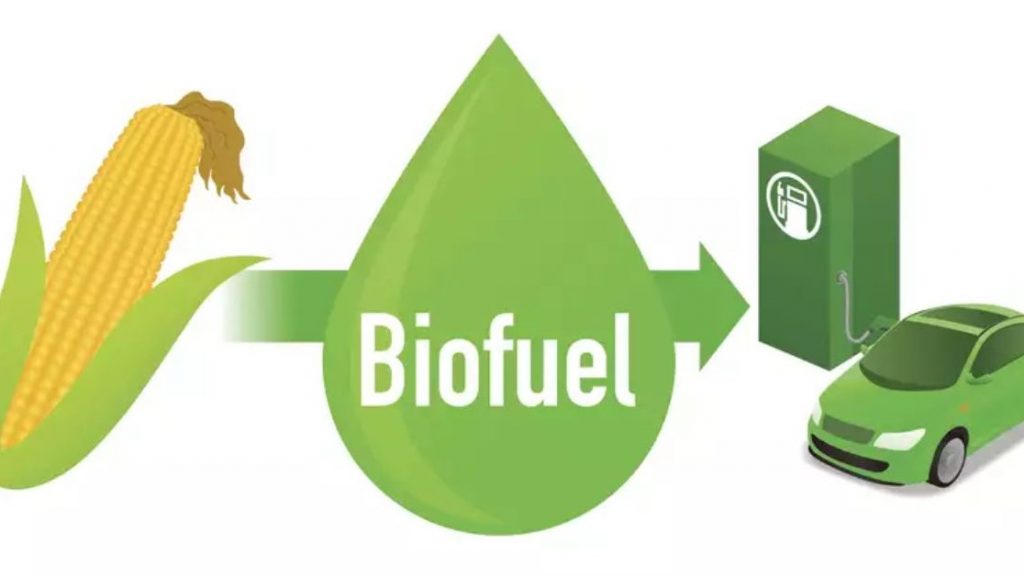One of the key aspects of India’s climate strategy is the pledge to achieve net-zero emissions by 2070. Given that energy production is a major contributor to greenhouse gas (GHG) emissions, focusing on cleaner and more sustainable energy sources is paramount. Fortunately, India is blessed with abundant biomass resources, positioning the country favourably for sustainable biofuels production.
This not only aligns with global climate goals but also resonates with the National Biofuel Policy’s objective of achieving energy independence. Biofuels encompass a range of alternatives, including compressed biogas (CBG), biodiesel, sustainable aviation fuel (SAF), and green electricity, often produced within today’s sugar refineries.
The transformation of sugar factories into integrated bio-refinery complexes is a significant stride towards production of eco-friendly fuel and bioelectricity from waste. Among various biofuels, bioethanol has already made a significant impact and garnered international attention.
India’s move to blend 12 per cent bioethanol with petrol has been successful and cost-effective, saving ₹53,894 crore in foreign exchange and cutting carbon dioxide emissions by 318 lakh tonnes. These achievements have established India as a serious player in the transition to cleaner energy sources.
The progress in bio-ethanol blending, with a target of 15 per cent for the upcoming year, is a testament to India’s commitment to reducing carbon emissions and curbing its reliance on fossil fuel imports. Overcoming initial challenges related to raw material availability and procurement, these achievements result from concerted efforts by the government and other stakeholders who have laid the foundation for eco-efficient growth.
A strategic focus on diverse ethanol sources, combined with high crop productivity, ensures a sustainable supply of raw material, benefiting both the environment and the agricultural economy. First-generation ethanol derived from sugarcane stands out for its low greenhouse gas emissions, which is only a third of what is emitted when using grains.
Furthermore, it boasts the highest water-use efficiency, producing approximately double the quantity of ethanol per unit of water compared to grains. Additionally, it demonstrates the highest land-use efficiency, yielding over 1.5 times more on a yearly basis compared to grains. India’s commitment to first-generation and even second-generation (2G) ethanol production, using agricultural/ forest waste and residue as raw material, underscores its focus on sustainable and eco-friendly biofuels.
Schemes such as the Pradhan Mantri JI-VAN Yojana provide financial support for 2G ethanol production. Beyond the economic benefits, the shift to biofuels promotes circular economic growth, combats climate change, and strengthens rural economies. While first-generation production predominates, the potential of second-generation technologies is vast
The formation of the Global Biofuels Alliance, endorsed by G20 countries, aims to bolster biofuels trade, ensuring energy security, affordability, and accessibility for a greener future. Achieving and exceeding blending targets requires collaboration among various entities, including the government, the biofuels industry, oil marketing companies (OMCs), and automotive manufacturers.
The Indian government is working across sectors to ensure seamless coordination in achieving the biofuel targets. By 2030, the aim is to achieve 20 per cent blend of ethanol in petrol and incorporate 5 per cent biodiesel. Furthermore, there are ambitious plans to produce 15 million tonnes of CBG in the coming year.
The potential of biofuels extends beyond these targets, finding applications in replacing conventional cooking and generator fuels (LPG and diesel), offering both economic and environmental benefits.
As India forges ahead with its biofuel initiatives, we lead in the transition to cleaner energy and contribute to a greener, more self-reliant Bharat (India). The quest for a swachh (clean) and atmanirbhar (self-reliant) Bharat is rooted in the development and expansion of biofuels as a key to a more sustainable and prosperous future.
Tags: Biofuels, CBG, Energy Security, GBA, India, NetZro, SAF



Recent Posts
Port of Brisbane Unveils Vision 2060 to Drive Smarter, Cleaner, and More Connected Future
Wärtsilä to Deliver Hybrid Propulsion Systems for Vertom Group’s New Low-Emission Vessels
Latvian port receives electric Konecranes Gottwald Mobile Harbor Crane
Sustainable Ocean Economy Vital for Human Development, Says UNDP at UN Ocean Conference
Green Hydrogen Costs in India Could Drop by 40%, Says IEEFA-JMK Report
Cavotec Secures €1.55 Million Shore Power Contract for Port of Antwerp-Bruges
APM Terminals and SANY Marine sign landmark agreement to accelerate decarbonisation
The Port of Gothenburg takes big step towards shore power connection for container and car/RoRo vessels